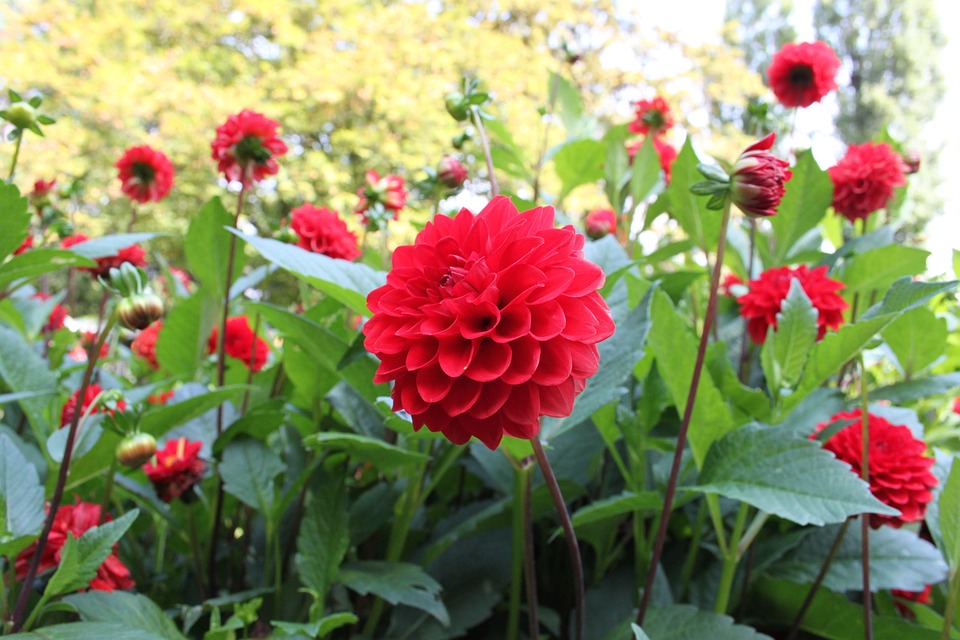All Categories
Featured
Table of Contents
- – The Power of Native Pollinators: Maintaining E...
- – The Importance of Native Pollinators
- – Attracting Native Pollinators to Your Garden
- – Enhancing Garden Biodiversity
- – The Role of Conservation in Protecting Native...
- – The Joy of Harvesting Organic Fruits from Your...
- – Recommended Products:
- – The Role of Bees and Pollinators in Organic Ga...
- –
- –
- –
- – Composting: Growing Organic Fruit Trees: Tips...
The Power of Native Pollinators: Maintaining Ecosystem Balance in Organic Gardens
When it comes to organic gardening, one of the key factors in ensuring a successful harvest is the presence of pollinators. While honeybees often receive the most attention, native pollinators play an equally important role in maintaining ecosystem balance. These native insects, birds, and bats are perfectly adapted to local plant species and have co-evolved with them over centuries, resulting in highly efficient and effective pollination.
The Importance of Native Pollinators
Native pollinators are essential for the reproduction of many flowering plants, including various fruits, vegetables, and herbs. These pollinators transfer pollen from the male parts of flowers to the female parts, enabling the plants to produce fruits and seeds. Additionally, native pollinators contribute to plant genetic diversity, which makes them crucial for the long-term health and resilience of ecosystems.
Attracting Native Pollinators to Your Garden
Creating a welcoming habitat for native pollinators is a relatively simple and rewarding task. One of the first steps is to provide a diverse range of flowering plants that bloom throughout the growing season. Native wildflowers, perennials, and herbs are particularly attractive to these pollinators and can be easily incorporated into any organic garden.
Another important aspect of supporting native pollinators is to avoid the use of synthetic pesticides and herbicides. These chemicals can be harmful to pollinators, affecting their health, reproduction, and navigation abilities. Instead, opt for organic pest control methods and encourage natural predators to keep pest populations in check.
Enhancing Garden Biodiversity
Alongside flowering plants, incorporating a variety of other features in your garden can further enhance its biodiversity and attract a diverse range of pollinators. This can include creating water sources such as small ponds or birdbaths, providing suitable nesting sites like bee hotels or brush piles, and considering the specific needs of different pollinator species.
The Role of Conservation in Protecting Native Pollinators
As natural habitats continue to be lost or fragmented, the importance of creating and conserving suitable environments for native pollinators becomes increasingly critical. Supporting local conservation efforts, such as planting native wildflowers along roadsides or participating in citizen science projects, can make a significant difference in protecting and promoting the health of native pollinator populations.
By embracing the power of native pollinators, organic gardeners can not only enjoy higher yields and successful harvests but also contribute to the overall health of the surrounding environment. Creating a nurturing space that welcomes these valuable creatures is a rewarding and essential endeavor for any organic gardener.
Looking to enhance your organic gardening experience? Check out this highly recommended book:

The Organic Gardener's Handbook of Natural Pest and Disease Control: A Complete Guide to Maintaining a Healthy Garden and...

The Joy of Harvesting Organic Fruits from Your Garden
Gardening is a rewarding activity that allows you to connect with nature and enjoy the fruits of your labor. When it comes to organic gardening, the joy of harvesting your own fruits is even more fulfilling. Organic fruits are not only delicious and nutritious, but they are also free from harmful pesticides and chemicals.
One of the main advantages of growing organic fruits is the superior taste and flavor. Without the use of synthetic chemicals, organic fruits develop their unique and natural flavors. From the sweetness of ripe strawberries to the tanginess of juicy oranges, each bite is a burst of freshness and satisfaction.
Another benefit of harvesting organic fruits is the peace of mind that comes with knowing you are consuming food that is good for your health. Organic fruits are grown without the use of chemical fertilizers, pesticides, or genetically modified organisms (GMOs). This means you can enjoy your favorite fruits without worrying about harmful residues or potential health risks.
Organic gardening also allows you to support biodiversity and protect the environment. By avoiding the use of chemical pesticides and fertilizers, you create a balanced ecosystem in your garden, attracting beneficial insects and birds. These natural allies help control pests and pollinate flowers, ensuring the health and productivity of your fruit-bearing plants.
When it comes time to harvest your organic fruits, it's important to handle them with care. Gently pick the ripe fruits, being careful not to bruise or damage them. Enjoy the fruits of your labor immediately or preserve them for later use through canning or freezing. Regardless of how you choose to savor them, the satisfaction of knowing that you have grown your own organic fruits is truly priceless.
So, roll up your sleeves, put on your gardening gloves, and start planting your favorite fruit trees and bushes in your organic garden. From luscious berries to vibrant citrus fruits, the possibilities are endless. Embrace the joy of harvesting organic fruits and experience the true flavors of nature.
Recommended Products:

The Role of Bees and Pollinators in Organic Gardening
Bees and other pollinators play a crucial role in organic gardening. They are responsible for transferring pollen from the male parts of a flower to the female parts, resulting in the fertilization and formation of fruits and seeds. Without pollinators, many plants would not be able to reproduce, leading to a decline in biodiversity and the loss of valuable crops.
One of the main reasons why bees and other pollinators are essential in organic gardening is their ability to increase fruit set and yield. Studies have shown that when bees are present in a garden, there is a significant increase in the number of fruits produced by plants. This is because bees efficiently move from flower to flower, transferring pollen and ensuring successful pollination.
In addition to their role in plant reproduction, bees also contribute to the overall health of an organic garden. They are attracted to nectar-rich flowers and in the process of collecting nectar, they inadvertently transfer pollen from one flower to another. This cross-pollination increases genetic diversity in plants and improves their overall health and resilience.
Furthermore, bees and other pollinators are indicators of a healthy ecosystem. Their presence in a garden is a sign of a diverse and thriving habitat. Organic gardening practices, such as avoiding the use of synthetic pesticides and providing a variety of native plants, can help attract and support these important pollinators.
To attract bees and other pollinators to your organic garden, consider planting a variety of flowers that provide nectar and pollen throughout the growing season. Native plants are particularly beneficial, as they have co-evolved with local pollinators and are well-suited to their needs. Providing nesting sites, such as bee houses or leaving areas of bare soil, can also help support these important creatures.
By understanding and appreciating the role of bees and pollinators in organic gardening, we can create healthier and more sustainable gardens that benefit both humans and nature.
Helpful Links:
Recommended Product:
organic gardening - Organic Gardening 101: Getting Started

Pollinator-Friendly Plants Organic Gardening 101: Getting Started
More about organic gardening: Most Views Today
Composting: Growing Organic Fruit Trees: Tips for a Abundant Harvest
Organic Gardening 101: Getting Started
Copyright © 2024 organic gardening - organic gardening All Rights Reserved.
Table of Contents
- – The Power of Native Pollinators: Maintaining E...
- – The Importance of Native Pollinators
- – Attracting Native Pollinators to Your Garden
- – Enhancing Garden Biodiversity
- – The Role of Conservation in Protecting Native...
- – The Joy of Harvesting Organic Fruits from Your...
- – Recommended Products:
- – The Role of Bees and Pollinators in Organic Ga...
- –
- –
- –
- – Composting: Growing Organic Fruit Trees: Tips...
Latest Posts
Exploring Gentle Giant Dog Breeds for Families
Unearthing Vinyl Gems: Thrift Store Adventures
Blockchain Scalability: Paving the Way for Eco-Friendly Cryptocurrencies
More
Latest Posts
Exploring Gentle Giant Dog Breeds for Families
Unearthing Vinyl Gems: Thrift Store Adventures
Blockchain Scalability: Paving the Way for Eco-Friendly Cryptocurrencies